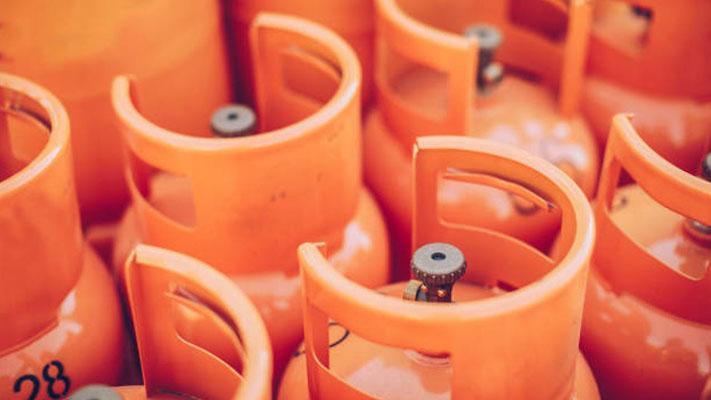In a move set to strengthen energy security and boost economic cooperation across West Africa, the West African Gas Pipeline Company (WAPCo) has deepened its partnership with various government agencies to expand and secure cross-border gas distribution through the West African Gas Pipeline (WAGP). The renewed collaboration is expected to drive policy alignment, enhance operational integrity, and position the region for broader access to cleaner energy.
The WAGP, which runs from Lagos, Nigeria, through Benin and Togo to Ghana, has long been regarded as a strategic piece of infrastructure connecting key markets and providing natural gas for power generation and industrial use. However, its operations have faced challenges ranging from regulatory hurdles to maintenance demands that require coordinated action by member states.

As part of this fresh effort, WAPCo and the West African Gas Pipeline Authority (WAGPA) have been engaging with Nigeria’s Ministry of Petroleum Resources to amend the WAGP Act. The amendment seeks to update the legal framework guiding the pipeline’s operations, harmonising fiscal and regulatory standards across Nigeria, Ghana, Benin, and Togo. According to the Minister of State for Petroleum (Gas), Ekperikpe Ekpo, the proposed changes will strengthen oversight and provide a clear path for investors to tap into the vast gas potential of the region.
The Federal Executive Council has already given its nod for the amendment bill, which is now with the Ministry of Justice for final review. The goal is to address legal gaps that have hindered smooth operations and to ensure that the pipeline continues to deliver economic and environmental benefits to participating countries.
Beyond legal reforms, WAPCo has completed a major round of pipeline maintenance aimed at ensuring the integrity of the 569-kilometre offshore section that stretches from Ajido in Lagos State to Takoradi in Ghana. The in-line inspection and pigging operation, carried out between February and March 2025, involved cleaning and checking the pipeline for faults while also replacing critical valves near Tema in Ghana and Cotonou in Benin.
The Managing Director of WAPCo, Greg Germani, noted that the maintenance work was crucial for preventing leaks and ensuring uninterrupted gas supply. Despite the operation, gas shipments to power plants in Takoradi were maintained to avoid supply disruptions, demonstrating WAPCo’s commitment to balancing infrastructure upgrades with customer needs.
Collaboration with national agencies, regulators, maritime authorities, and host communities was vital in the successful execution of the project. Officials say this multi-stakeholder approach reflects the shared commitment to safeguarding a regional asset that has significant implications for energy security and industrial development.
WAPCo’s renewed partnership with government agencies comes at a time when the region is exploring greater integration of its energy infrastructure. Talks are underway to align the WAGP with other regional initiatives like the Nigeria–Morocco Gas Pipeline, which aims to link West African countries to North Africa and Europe. Experts believe that such synergy could unlock new export opportunities and attract investments that drive economic diversification.
For Nigeria, the largest gas producer in the region, strengthening cross-border gas distribution is also about unlocking the full value of its vast gas reserves. While oil remains dominant in the country’s energy portfolio, the government has made gas a central pillar of its transition plan, seeing it as a bridge fuel that can provide reliable power while supporting a gradual shift to renewables.
However, stakeholders stress that expanding regional gas trade requires more than pipelines and policy reforms. Security of supply, pricing, and community engagement are just as critical. WAPCo has pledged to deepen its engagement with communities along the pipeline corridor, ensuring that host areas benefit from social investment projects and employment opportunities.
Industry analysts have welcomed the latest partnership, noting that it could help tackle some of the recurring challenges that have undermined the promise of the pipeline over the years. Frequent maintenance issues, vandalism, and disputes over tariffs and supply obligations have sometimes slowed the pipeline’s contribution to the region’s energy needs.
To address this, the pipeline company is counting on stronger regulatory frameworks and closer collaboration among the four member states. This includes aligning environmental and safety standards, sharing data, and coordinating security measures to protect the pipeline from external threats.
The broader economic impact is expected to be significant. By delivering natural gas to power plants and industries across the corridor, the pipeline can help reduce dependence on expensive and polluting fuels like diesel. This in turn lowers production costs, stabilises power supply, and supports job creation, especially in energy-intensive industries such as cement, steel, and manufacturing.
As part of its long-term strategy, WAPCo is also exploring ways to extend the pipeline’s reach to more communities and industries that are not yet connected to the grid. There are discussions on expanding feeder lines and building new metering stations to meet growing demand.
With rising energy costs and increasing pressure on African nations to transition to cleaner sources, natural gas is seen as a viable option to power economic growth while curbing emissions. By reinforcing the foundation for cross-border gas trade, the WAPCo partnership with government agencies is setting the stage for West Africa to better harness its energy resources for sustainable development.
For now, stakeholders say the priority is to ensure that the ongoing reforms translate into real improvements in supply reliability, operational efficiency, and benefits for local communities. If successful, the West African Gas Pipeline could serve as a model for regional energy cooperation in Africa—one that not only powers cities and industries but also deepens economic ties and secures a cleaner energy future for millions.
Support InfoStride News' Credible Journalism: Only credible journalism can guarantee a fair, accountable and transparent society, including democracy and government. It involves a lot of efforts and money. We need your support. Click here to Donate
